Keresés: %s
Keresés: %s
Market situation, fishing opportunities and food waste were in the focus at the Agriculture and Fisheries Council in October
Ministers of agriculture exchanged views among others on agri-market situation, especially the Ukrainian grain export, fishing opportunities in the Baltic Sea, and the fight against food waste at their meeting in Luxembourg on 23-24th October.
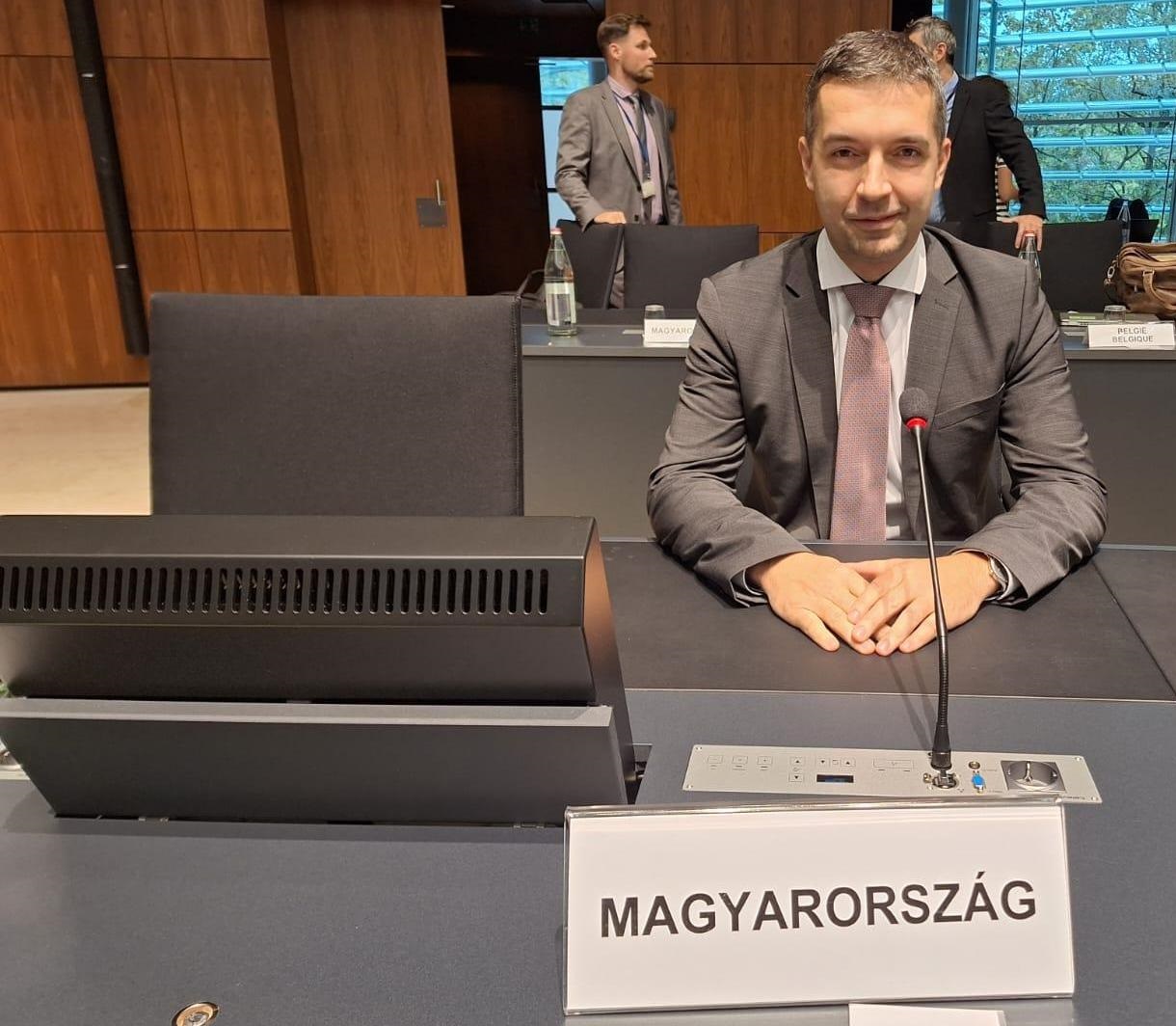
The European Commission stressed the need to strengthen the Solidarity-lanes, in order to support the Ukrainian economy. However, according to the frontline Member States the situation on agricultural markets is still under heavy pressure due the low purchase prices and the lack of storage capacity. State Secretary Zsolt Feldman, thus stressed the importance of improving the functioning of the Solidarity Lanes and restoring their original purpose. He added that Ukrainian agricultural products should return to their traditional export markets and reach the third countries in need. The State Secretary stressed the need for such a solution on Ukrainian grain imports, which takes into consideration the interest of farmers both in frontline Member States and in Ukraine.
Ministers were informed on the tools against food waste and food loss included in the Commission’s proposal amending the Waste Framework Directive.
Ministers also agreed on the applicable fishing opportunities in the Baltic Sea for 2024.
State secretary calls for boosting member states' competencie
The economic and political situation in EU Member States vary considerably, it is therefore better to determine the necessary economic reforms and measures at national level. Hence it is important that the room for manoeuvre and decision-making power of individual countries shall be increased in this area, and not those of the European Commission – said Tibor Tóth, State Secretary for Macroeconomic and International Affairs of the Ministry of Finance.
The State Secretary attended a meeting of the EU's Economic and Financial Affairs Council (ECOFIN) in Brussels on Thursday.
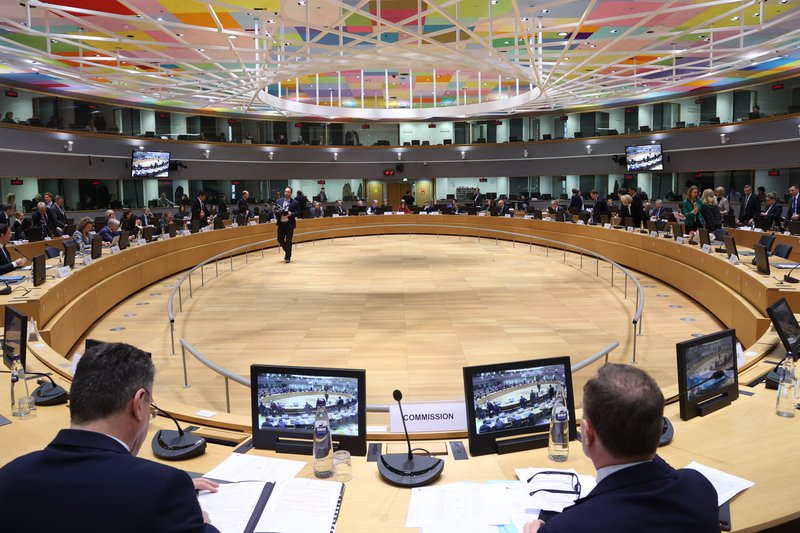
Tibor Tóth, State Secretary for Macroeconomic and International Affairs, said on the sidelines of the meeting that they had discussed a proposed reform of the EU economic governance framework.
The proposal, a priority of the Spanish presidency, has made "significant progress, also thanks to Hungary's proposals," he said.
"We welcome the direction represented by the Spanish presidency in this area as well as those implemented amendments on economic governance that were made, among others, at our request in connection with the reform package," he declared.
Hungary proposed three amendments, Tóth said. First, "it is important that a classification should be decided based on objective measures rather than the subjective bilateral meetings and evaluations of the European Commission," he said.
Hungary also proposed allowing Member States more room for maneuvering in the reform procedure, Tóth said, further adding that "It seems the Spanish presidency's stance is shifting closer to ours in this regard."
Finally, we have also proposed to the Spanish Presidency that a specific set of rules on defence expenditure be defined, so that the additional expenditure that a country approves and spends on defence does not count towards the debt path under the Maastricht criterion. That proposal is expected to be included in the economic reform package, he said.
While Hungary supports the reform package, many details must be cleared before it can be finalised, Tibor Tóth said.
Source: MTI- Hungarian News Agency
Szijjarto: Government to represent 'special Hungarian interests' regarding Israel
Hungary's government will stand up for "special Hungarian considerations" at all fora discussing the situation in Israel as freeing Hungarian hostages and bringing those in Gaza to safety is of primary importance, the foreign minister said in Brussels on Monday.
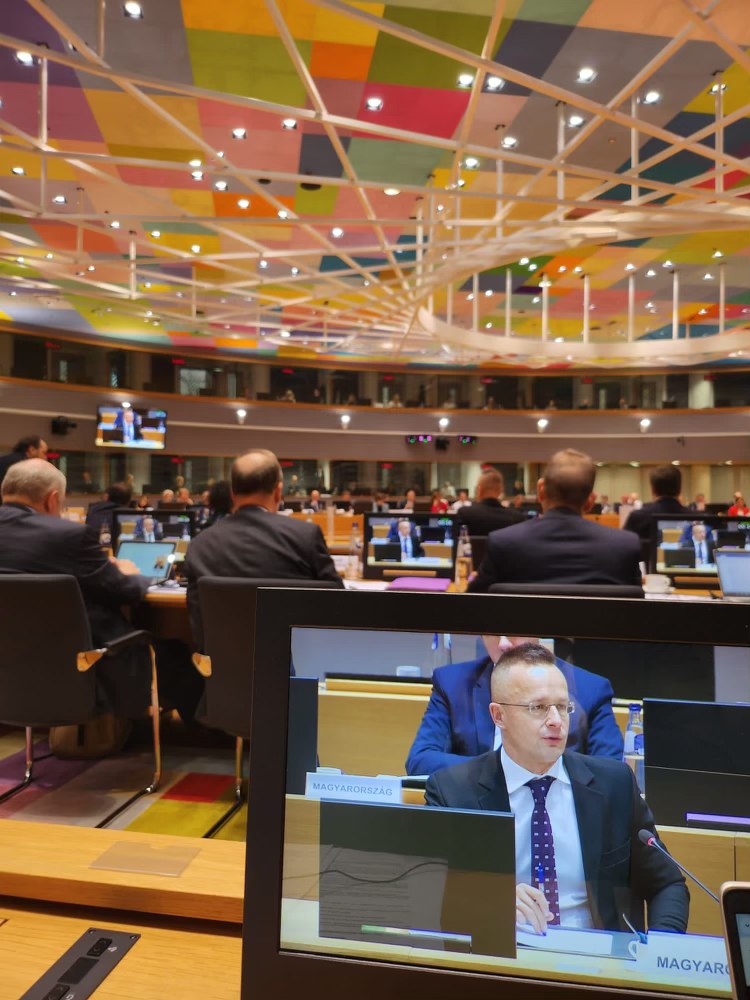
Speaking on the sidelines of a meeting of European Union foreign ministers, Péter Szijjártó told at a press conference that the roots of the conflict “should not be forgotten or relativized” despite the varied takes of Member States on the situation. “So there has been a brutal terrorist attack here, thousands of rockets fired by a terrorist organization into Israel, killing and wounding thousands of innocent people. What is happening now is a counter-terrorist operation, a fight against terrorism," he said. Then, he pointed out that the success of military operations is not only in the interest of Israel but of the whole world.
He underlined that the government will demand the implementation of particular Hungarian aspects in all international fora. One of these is the fact that there are still seven Hungarian citizens stranded in Gaza who cannot leave for security reasons. “We are in constant contact with them. The place they are staying in was hit yesterday, and several of them were slightly injured and taken to hospital. They have all left it by today and are organizing their journey to the border crossing point in Rafah,” he said, referring to the only border crossing point in the Gaza Strip with Egypt. Szijjártó said he had agreed with his Israeli and Egyptian counterpart that the Hungarian citizens as well as their two Palestinian relatives may leave the Gaza Strip once they arrive to Rafah.
“Regarding the conflict in the Middle East and fight against terrorism, Hungary will only support solutions that enable all dual citizens and their family members to leave the Gaza Strip in case they want to,” he said. Hamas is also holding five Hungarians hostage, he underlined and thanked Qatar for its mediation in the negotiations.
“We can back resolutions and proposals of any international organization only if it calls on Hamas to free hostages immediately, unconditionally," he said. The international community also has a task to prevent an escalation, as a war between states in the Middle East “would have unforeseeable consequences,” he said. Szijjártó also highlighted the importance of support for Egypt, saying that instability would dramatically affect European security. He said Cairo has a significant role in curbing migration to the continent.
"If Egypt loses its stability and can no longer act as a barrier, the continent could face migration pressure and security challenges it does not seem to be prepared for," he said.
He added that Hungary supports the health care of Gaza refugees in Egypt with HUF 40 million.
Péter Szijjártó also said that his Ukrainian counterpart also joined the meeting via a video call to seek more support for Ukraine's fight. Hungary's stance is that it is time for the EU to confront the outcome of its political decisions on Ukraine, Szijjártó said according to a ministry statement.
The EU, he said, should assess the extent to which its policies had achieved their intended goals, as well as their impacts on the bloc and its foreign relations, the Member States, Russia and Ukraine.
"If we looked at what this enormous financial support of more than 80 billion euros has been spent on so far (…), we'd see that only a small fraction of the goals of these decisions can be said to have been successful," Szijjártó said." The fact is that the sanctions have, at the very least, shot the European economy in the foot," he said." It has also become clear that this war can't be resolved on the battlefield as it only leads to casualties and destruction. It is also clear that the hopes of a successful breakthrough for the Ukrainian counter-offensive have by today become an illusion."
Szijjártó said the EU will put forward a proposal on its 12th package of sanctions this week. "I think it's fair to ask how we can have a meaningful debate on a 12th sanctions package when there hasn't even been any comprehensive analysis on the first 11 packages," the minister highlighted.
He added that Brussels and certain Member States were not prepared to confront the damage the sanctions had done to the European economy and how they had failed to fulfil their purpose. He underlined that the sanctions have failed to achieve their main goals of bringing the Russian economy to its knees and bringing about peace.
"And we also don't see a possibility for a meaningful debate on transferring tens of billions of euros more to Ukraine when the EU and its Member States haven't received any kind of briefing or account of how the 80 billion euros approved so far has been spent," he pointed. The minister also underlined that "there has been enormous pressure" on Hungary to agree to another 500 million euro payment from the European Peace Facility for weapon deliveries to Ukraine.
"Of course, I did not contribute to this at today's meeting either, as we continue to maintain our position that until we receive a guarantee from the Ukrainian anti-corruption agency that the OTP or any Hungarian company will not be replaced on the list of international sponsors of the war based on trumped-up charges, we will not be able to move forward on this issue," he declared. "Some called it unfair, others said it was scandalous, but I asked my EU colleagues not to mislead the public," he said.
"This isn't support for Ukraine. These 500 million euro would help Member States, which decided to deliver weapons as sovereign countries, to recover part of the price of those weapons," he said.
"Hungary will not contribute to paying 500 million euros until the Ukrainian anti-corruption agency guarantees that Hungarian companies will not land on the list of sponsors of the war based on unfounded and sometimes ridiculous charges," he said.
Regarding Ukraine's EU candidacy, Szijjártó said the country was "very far from fulfilling the requirements and even from any sort of progress." He emphasized that in the field of national minority rights, which are also considered necessary by the EU, not only has no progress been made in the past period, but the situation has further deteriorated. "We have had reports that the Ukrainian education ministry had instructed schools that teachers and students should use the official language, Ukrainian, even during breaks." The government sees no reason to advance Ukraine's candidacy, he said.
The Minister, therefore, explained that the Government would not consider any progress in Ukraine justified. "Besides, the European Union should take peace to third countries rather than importing war into the bloc," he said.
Szijjártó said he expected mounting pressure on the issue. "I think it is particularly cynical on Ukraine's part that they're not even trying to solve the issues important to us. In no way can this be interpreted as a sign of a willingness to cooperate fairly.”
Source: MTI-Hungarian News Agency
Kristóf Szalay-Bobrovniczky: Hungary doesn't support the further funding for Ukraine
Hungary continues to reject delivering weapons to Ukraine, and does not support further financial support either, the defence minister said in Brussels on Tuesday.
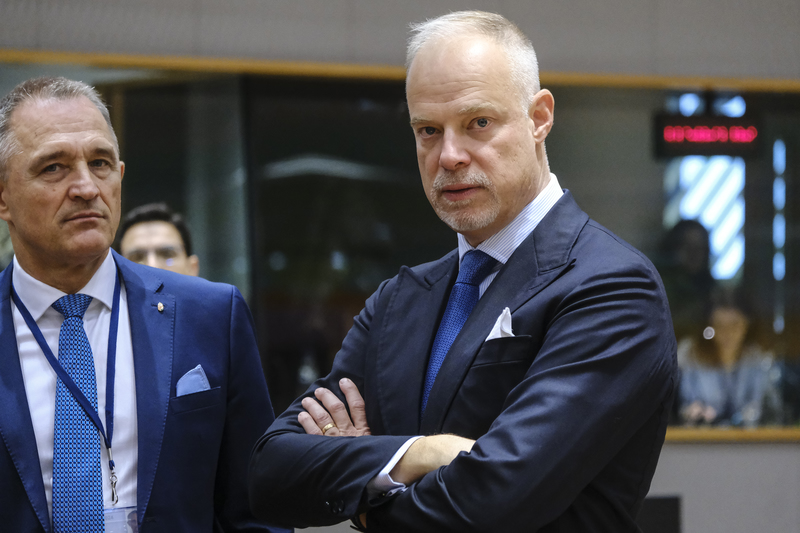
In a statement given on the sidelines of a meeting of EU defence ministers, Kristóf Szalay-Bobrovniczky regretted that Member States had not changed their stance on the issue, and continue to discuss weapons deliveries to Ukraine.
He underlined Hungary’s commitment to promoting an immediate ceasefire and peace talks. The Hungarian government does not support Ukraine's continued funding as the country barely wanted to remove one of the largest Hungarian banks from their blacklist. The bank was listed by the Ukrainians on the basis of false information and there is no guarantee that this will not happen again, he warned.
He said, the ministers also discussed the situation in the Sahel, an issue with a direct bearing on Hungary's security. He stated that the Hungarian Parliament adopted a package of aid last week which includes military aid for the region.
He considered the Western Balkans another important region which is also one of the most important migratory routes into Europe. The stability of the Western Balkans region is directly connected to Hungary's security, he said.
Finally, the Minister of Defence said that Hungary will take over the command of the European Union military mission in Bosnia next year which is a major step forward. A Hungarian general will command the contingent that will guard the security of this region, he stressed. "Peace requires strength. We will continue to work," he said.
Source: MTI - Hungarian News Agency
There is a need to reconsider how successful the EU’s strategy with Ukraine has been so far
The European Union should start a period of reflection on the success of the EU's strategy towards Ukraine, EU Affairs Minister János Bóka said in Brussels on Wednesday.
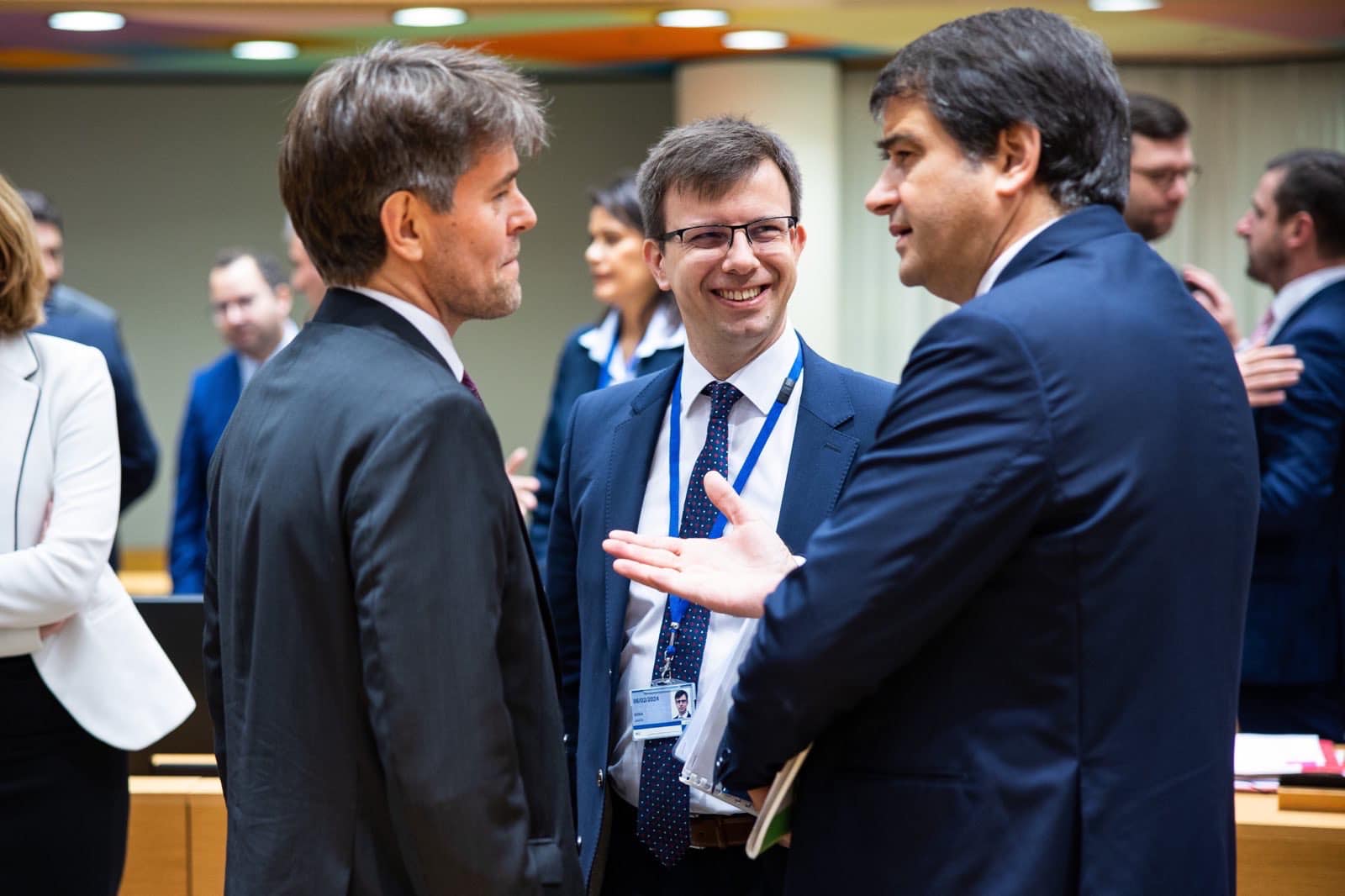
Speaking to Hungarian journalists after the meeting of EU ministers responsible for the General Affairs Council, János Bóka stressed that the debate on the EU's strategy towards Ukraine should include how the support provided so far has been used, whether it is sustainable, and whether there are other options.
Following such the debate the EU can be in a position to take a position both on the enlargement process of the country and on the review of the seven-year budgetary framework regarding further assistance. The strategic debate must precede these decisions, he announced.
"The enlargement process is also a crucial issue for the Hungarian EU Presidency," said János Bóka, adding that Hungary wants to see a proper political balance between the old enlargement, the one of the Western Balkans, and the new enlargement, the Eastern enlargement process.
He said that the Western Balkans are a priority for Hungary. For the European Union, integrating the Western Balkans does not require fundamental institutional and budgetary changes, so linking institutional reforms with the enlargement of the Western Balkans is a political decision, which, he added, is not necessary.
Regarding the debate on the preparation of the European Council due on 14-15 December, he said that the leaders of the Member States would be discussing the situation of the Israeli-Palestinian conflict, in the context of which the Hungarian position is that a terrorist organization has carried out a terrorist attack against a sovereign state and this sovereign state is currently exercising its right to self-defence. The hostages held by the terrorist organization must be released immediately and unconditionally. The European Council cannot adopt a final declaration that does not include that. The immediate and unconditional release of the hostages must be a precondition for the European Union to join any international statement or initiative.
He said the review of the seven-year framework budget is also on the agenda of the December European Council. Hungary would ideally like to see an instrument for supporting Ukraine that operates outside the budgetary framework rather than within it. This would allow Member States, international financial institutions, and other stakeholders to contribute flexibly in the support of Ukraine.
Source: MTI-Hungarian News Agency
Future of rural area and sustainable forestry were in the focus at the Agriculture and Fisheries Council in November
Ministers of agriculture exchanged views among others on rural areas and sustainable forestry at their meeting in Brussels on 20th November.
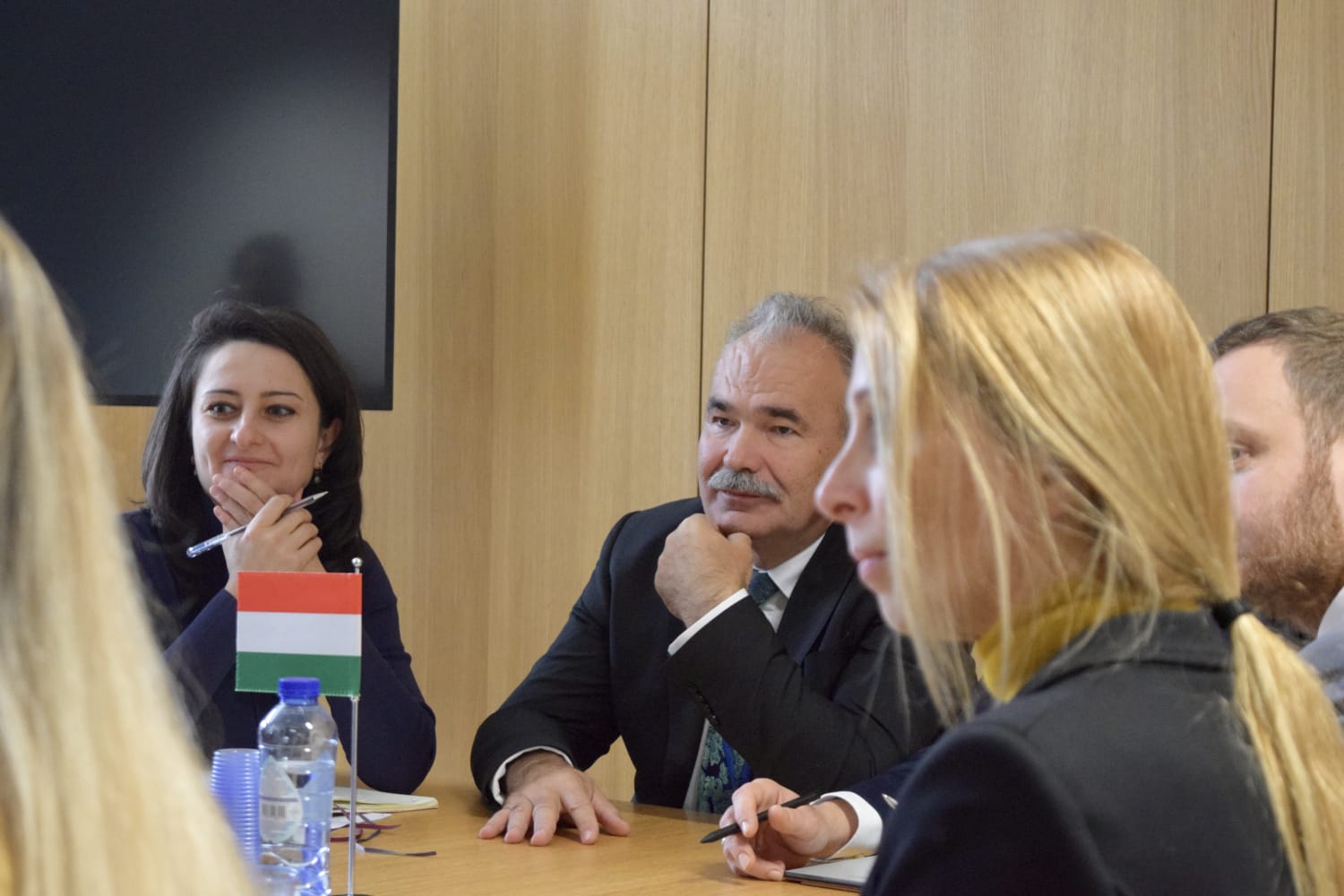
Ministers unanimously approved the Council Conclusions on the long term vision of rural areas. Minister István Nagy stressed that agriculture plays an indisputable role in food security, employment and sustainability, and it is the foundation of Europe's natural and cultural heritage. The Minister also pointed out that rural development cannot be financed only from the CAP budget, the involvement of other EU development funds is equally important.
On EU forests, the European Commission recalled, that the new EU Framework for Forest Monitoring and Strategic Plans is expected to be published during the week. István Nagy said that the future of our forests requires a sustainable management.
Germany stressed the importance of cooperation with partner countries on the effective implementation of the EU new Deforestation Regulation. Minister István Nagy agreed with the importance of partnership, on the other hand Minister Nagy also considered it important, how EU producers and authorities will comply with the new regulation and how its implementation will affect the EU's competitiveness.
Ministers also discussed the different aspects of the proposal on new genomic techniques (NGT).
The EU and its Member States need to look strategically at the way they help Ukraine
According to the Hungarian position, the European Union and its Member States must take a strategic approach to Russia's war in Ukraine, Azbej Tristan, State Secretary for the Aid of Persecuted Christians at the Ministry of Foreign Affairs and Trade, told MTI in Brussels on Tuesday.
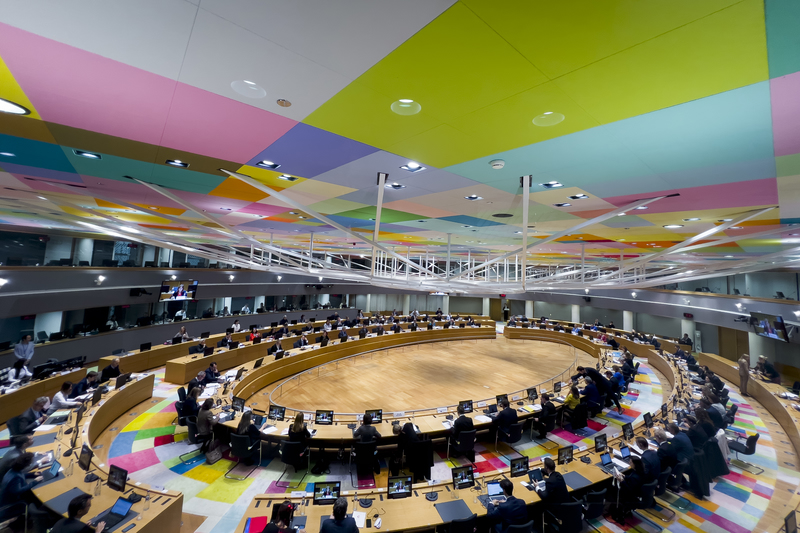
The Secretary of State, who arrived in the Belgian capital to attend a meeting of EU development ministers, recalled that the European Union has allocated more than €80 billion in financial aid to Ukraine. "We think it is time to look at the effectiveness of this aid and how it leads to the most important goal for Hungary, which is a speedy ceasefire and peace," he said.
Tristan Azbej said that Hungary had launched the most significant humanitarian and reconstruction operation and program in its history concerning the war in Ukraine. However, European policies and measures in this area did not bring the expected results.
At the Council meeting, he stressed the importance of humanitarian aid, crisis resolution, and peace in the context of the Gaza conflict.
"People suffering on all sides deserve humanitarian aid. In the spirit of this, Hungary demands the immediate release of the hostages kidnapped from Israel by the terrorist organisation Hamas, including Hungarian citizens," he emphasized.
The State Secretary said that Hungary, in cooperation with Egypt, is providing support to help civilians fleeing Gaza. However, he added that the priority must be to ensure peace.
"Every possible means must be used to prevent the conflict from escalating into a war among states. And the basic condition for peace is what must be said in the name of truth: Israel was attacked by terrorists. Hamas is a terrorist organisation, so Israel has the right to defend itself and to wage its war against terrorism," he said.
In his statement, the State Secretary also said that Hungary attaches high priority to the Sahel region. "Hungary realised that what happens there not only determines the future of the African continent but also affects the future of Europe. This African region faces the challenges of climate change, slow economic development, food and water shortages, and political instability. Extremist ideas and organisations are gaining ground, and so is the persecution of Christians," he said.
He pointed out that the situation in the Sahel could lead to a lasting humanitarian disaster on the continent, which the Hungarian government wants to prevent in a spirit of Christian solidarity to save human lives and avoid a massive wave of migration.
At the council meeting, Tristan Azbej also spoke about how Hungary successfully cooperates with the communities in the region, including Christian charity organisations, within the framework of the Hungary Helps Program, thereby achieving its humanitarian and migration prevention goals.
He announced that Hungary Helps will soon open a regional office in Chad, one of the last stable countries in the region.
"This office will coordinate and implement complex humanitarian projects and care for displaced people. It will also help alleviate water and food shortages through agricultural development activities based on Hungarian expertise," he said.
He also announced that Hungary will send a military mission to Chad, where 200 Hungarian soldiers will serve next year.
"This mission aims to make the humanitarian and development activities of the Hungary Helps Agency safer, to contribute to the stability of the country, and to prevent migration from the zone," said Tristan Azbej.
Source: MTI - Hungarian News Agency
A new internationalisation program is being launched with the cooperation of model-changing universities.
On Thursday morning, the Board of Trustees of the Tempus Public Foundation adopted the principles and concept of a new internationalisation program jointly developed by the Ministry of Culture and Innovation, the Tempus Public Foundation, and leading Hungarian universities, the University of Pannonia, University of Debrecen, Széchenyi István University, Óbuda University and Semmelweis University, Balázs Hankó, State Secretary for Innovation and Higher Education at the Ministry of Culture and Innovation said to MTI in Brussels on Thursday.
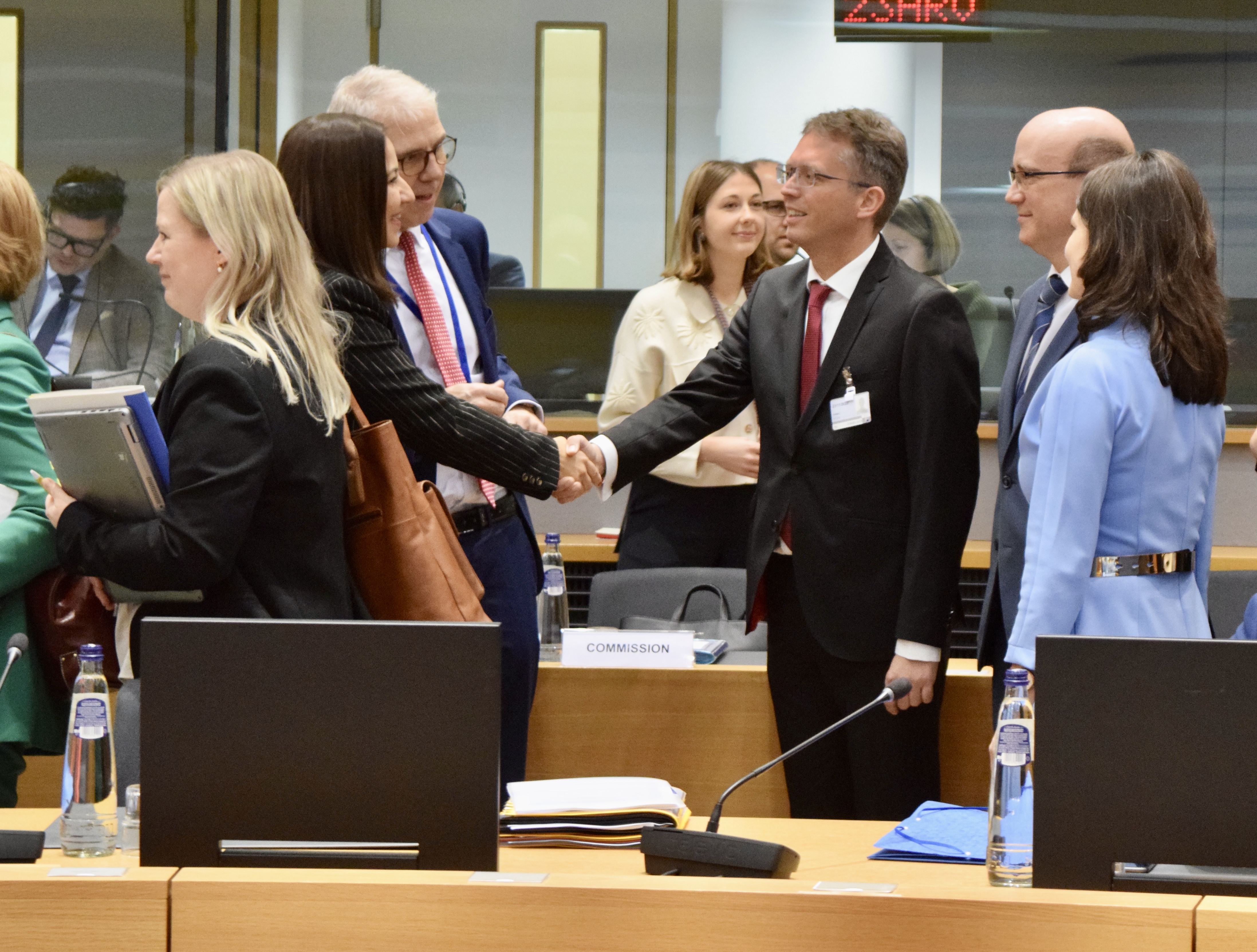
The State Secretary, who arrived in the Belgian capital to attend a meeting of EU education ministers, said that the program, which will be launched next year, has a budget of HUF 10 billion and will provide the opportunity to participate in the exchange program to around 8,000 students, teachers and researchers. The program will first be available for universities managed by the model-changing public interest trusts. The Tempus Public Foundation will launch the call for applications to universities on 15 January 2024, so students can apply to their universities as early as next March so that they can participate in the exchange from the autumn.
As Balázs Hankó said, it will be possible to study not only in Europe but also in universities outside Europe, like in Asia or North America, based on international agreements concluded by the universities. In addition, there will be the possibility of scholarships for excellence, which will provide scholarships for more than 200 students to study at the best universities in the world.
He added that the new program would fully recognise university credits completed at foreign universities, meaning that studying abroad will no longer delay university studies, and the scholarship will range from HUF 350-500,000 per month. The program will focus on fields of study relevant to the Hungarian economy or society.
The State Secretary also stressed that he hopes the new program will help achieve the government's goal of having at least one Hungarian university among the world's top 100 universities by 2030, three Hungarian universities among the top 100 European universities, and doubling the number of students participating in international exchange programs to 20,000 per year.
On the Erasmus case, Balázs Hankó said that the government sent its latest proposal to the European Commission almost two weeks ago, but as usual, the response did not arrive on time.
"The commission should know that in the Erasmus cooperation rules they have laid down, Hungarian universities had to apply by 23 February, and they have nine months to conclude contracts based on these rules, so the deadline is today, but of course, the commission can decide to extend it.”
We are in the process of negotiation, and we hope that the commission will accept the proposals we have made precisely in response to their comments to ensure that EU funds are adequately protected and not follow the tactic of always asking for more and more aspects, which has only served to delay the commission’s work.
He also added that the new exchange program is "better and more than Erasmus," as it incorporates the criteria of Hungarian universities and Hungarian students. "Bilateral agreements will be strengthened with universities that are the most important for Hungarian universities and Hungarian students. It also prioritises areas of training and research that serve the interests of the Hungarian economy and the Hungarian people," he added.
The State Secretary also said Hungarian higher education had achieved a successful competitiveness turnaround in recent years. "This is also shown by the results: four years ago, 7, two years ago 9, last year 11, and this year, 12 universities are in the top 5 percent of the world, and this year was the most successful admission year of the last decade, as more than 33 percent more students enrolled in Hungarian higher education than last year," he said.
According to Balázs Hankó, it is also essential for Hungary to involve as many women as possible in technical, scientific, and IT education and research. "One in four students in these fields in Hungary are women, but we want to double this proportion by 2030. We have therefore launched several initiatives, such as the Tech Girls program, to make these professions more attractive to women," said the State Secretary.
Source: MTI-Hungarian News Agency
The Education, Youth, Culture and Sport Council (EYCS) took place on Thursday, 23 November and Friday, 24 November, in Brussels.
The Spanish Presidency was represented by Ms Pilar Alegría, Minister for Education, Vocational Training and Sports, Ms Sira Rego, Minister for Youth and Childhood, Mr Ernest Urtasun, Minister for Culture and Mr Victor Francos, Secretary of State for Sports. The European Commission was represented by Ms Věra Jourová, Vice-president for Values and Transparency, Ms Iliana Ivanova, Commissioner for Innovation, Research, Culture, Education and Youth and Mr Roberto Viola, Director-General for DG CONNECT.
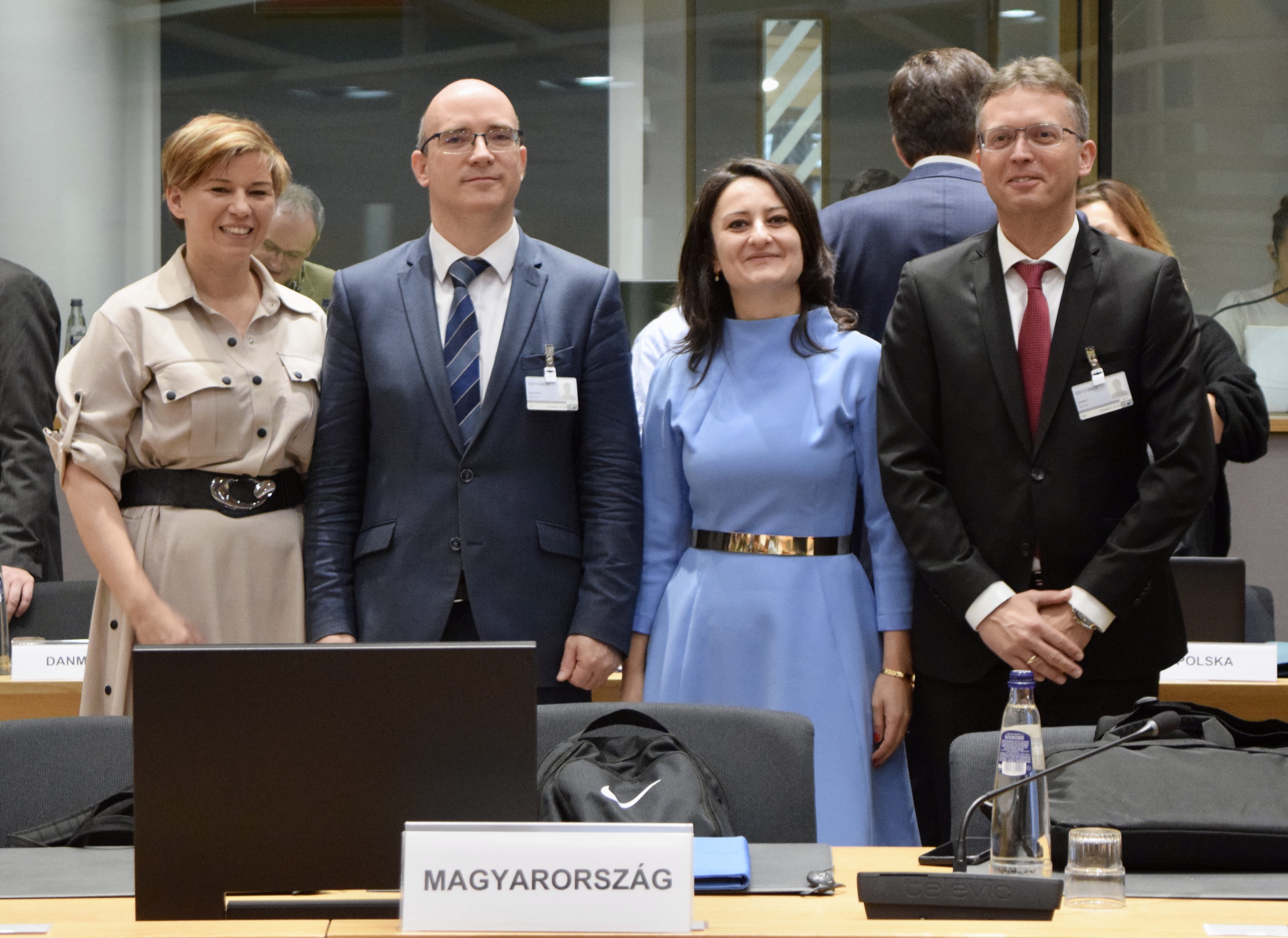
Education ministers adopted Council conclusions on strengthening common European values and democratic citizenship, and approved Council recommendations on encouraging successful digital education and training, and improving the provision of digital skills. The focus of their political debate was how they could involve more women in their training and education systems in the fields of science, technology, engineering, art and mathematics (STEAM). Among other items on the agenda, the European Commission presented the “DSA (Digital Services Act) schoolyard guardians initiative” and the meeting also raised the topic of data protection in digital education and aid to Ukraine in the education sector. Hungary was represented by Balázs Hankó, Minister of State for Innovation and Higher Education, and Zoltán Maruzsa, Minister of State for Public Education.
The Council adopted conclusions on promoting the mainstreaming of the youth perspective in EU policy-making processes and on a comprehensive approach to mental health in the EU. Youth ministers exchanged their views on the role of young people in EU decision-making processes, which can contribute to the creation of a forward-looking European Union committed to its young citizens, taking into account complex challenges such as the climate crisis, job insecurity, precarious employment and housing issues. The decisions which are taken or not taken now, to address these issues, will affect young people for the rest of their lives, so it is the responsibility of decision-makers at all levels to listen to young people's concerns, find solutions and take their views and suggestions into account when designing policy solutions. Ministers also discussed the importance of promoting young people's participation in democratic processes, which young people consider to be one of the most effective ways of making their voices heard. The debate also covered the mainstreaming of the youth perspective in the design of different policy initiatives and the possibility of introducing an EU-wide youth test to assess the impact of different policies and instruments on young people. Hungary was represented by the Youth session of the Council by Ágnes Hornung, Minister of States for Families.
Under the 10th cycle of the European Youth Dialogue and as a member of the Trio Presidency, Hungary participated at the informal breakfast with young people's representatives, discussing the importance of mental health and its impact on young people's lives.
With regard to cultural and audiovisual issues, Ministers adopted conclusions on enhancing the cultural and creative dimension of the European video games sector and had a fruitful policy debate on improving the working conditions of artists and other cultural professionals. The Any Other Business (AOB) points included an information of the Presidency on the current stage of European Media Freedom Act’s (EMFA) negotiations as well as several information points on European capitals of culture 2024 and 2028 and other Member State’s initiatives in the field of culture. At the cultural session Hungary was represented by Balázs Hankó, Minister of State for Innovation and Higher Education.
Sport ministers discussed the topic of safe environment in sports. They agreed that the individual and collective benefits of sport are only applicable if health and safety aspects are enforced. In order to create a safe environment, safe sports infrastructure and sports facilities must be created, as practising sports should not involve health and safety risks. Sport only contributes to a healthy lifestyle if it is not harmful to health through accidents, injuries, or illnesses. Protecting children was a key issue, as was ensuring the participation of people with disabilities. The Council also approved the Council conclusions on women and equality in the field of sport. Under AOB points the French and German delegations provided information on the European dimension of the Olympic and Paralympic Games of Paris 2024 and of the 2024 European Football Championship.
A two-day long meeting of EPSCO Council on 27-28 November, 2023 has come to an end with ministers adopting important decisions while also discussing a number of topics in the field of employment and social policy.
Regarding policy debates, in connection with the EU's action plan against racism, the head of the Hungarian delegation Attila Fülöp, Minister of State for Social Affairs, underlined, inter alia, that Hungary will develop a national strategy by the end of the year in consultation with the representatives of the Jewish communities in Hungary.
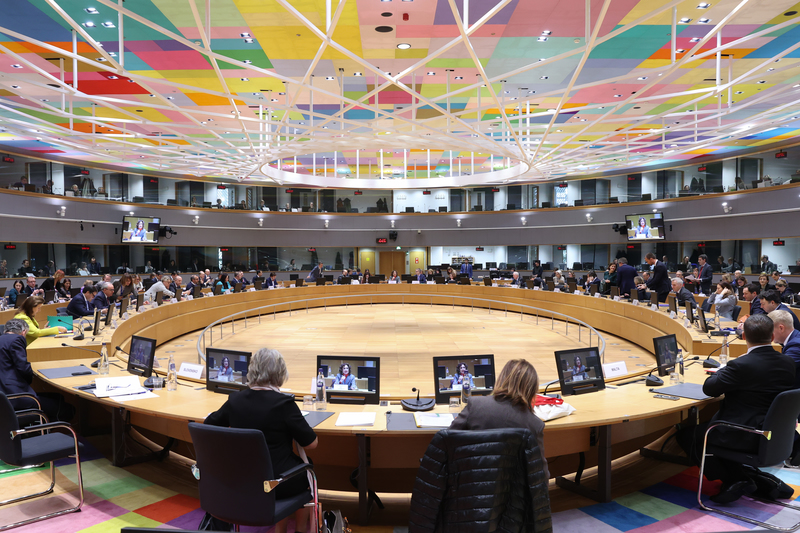
The development of a national strategy against racism is also underway, furthermore, the adoption of the Hungarian National Social Inclusion Strategy 2030 is also a strong reflection of the government's commitment. In the context of the debate on social investments, Hungary expressed its agreement with the potential role of social investments in stimulating the economy and supporting financial sustainability, however, we voiced our concerns regarding the EMCO-SPC joint report discussed in connection to the relevant agenda item and made a separate statement.
During the discussion on green collective bargaining, Minister of State Fülöp highlighted, among other things, that bearing in mind the importance of the green transition, in the current EU programming period, the Hungarian government provides significant resources to increase the means of the social partners.
In relation to the draft directive for the introduction of the European Disability Card and the European Parking Card, the Council adopted a general approach that paves the way for negotiations with the European Parliament. The Council also endorsed key messages from the Employment Committee (EMCO) and the Social Protection Committee (SPC) on the implementation of the Recommendation on ensuring a fair transition towards climate neutrality. The Council also approved conclusions on workplace democracy, a person-centered approach to care services, the European Court of Auditors' special report on the situation of people with disabilities, and the digitalization of social security coordination.
Furthermore, the ministers were informed about the current state of negotiations regarding the directives on regulations for equality bodies, the directive on platforms, the regulation on European population statistics, and the draft directives on the protection of workers against lead and its inorganic compounds. The presidency also reported on the informal meeting of equality ministers in Pamplona on 23-24 November, and on the European Year of Skills. The presidency also informed the ministers about the state of play of the review of the regulations on the coordination of social security systems, as well as other events of the presidency. The Commission provided information on the current situation in Ukraine, the talent mobility package and its annual work programme, while the upcoming Belgian presidency shared its planned work programme.
European Strategic Autonomy in Health on the Agenda at the Health Ministers' Council Meeting
On November 30, 2023, the Council meeting of the European Union's Health Ministers (EPSCO) took place in Brussels. The meeting was chaired by Spanish Health Minister Mónica García. From the European Commission by Stella Kyriakides, Commissioner for Health and Food Safety attended the meeting.
Delegations exchanged views on how to strengthen the European Union's strategic autonomy in healthcare in order to avoid, on the short and long-term, shortages of medicines and medical devices. There was an agreement that the measures outlined in the Commission's October communication on addressing drug shortages could mark progress in ensuring supply security. From Hungarian side it was underlined that Hungary also supports a joint European approach based on the cooperation of member states. The Hungarian Medicines Authority actively participates in solidarity and forecasting mechanisms coordinated by the European Medicines Agency and remains open to joint procurements that consider the real needs of Member States. We referred to the EU pharmaceutical package's legislative proposals also include several measures supporting supply security.
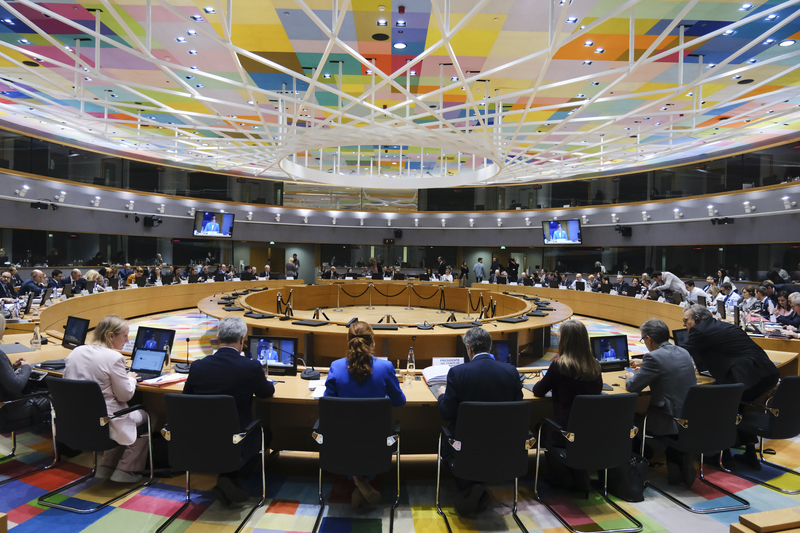
The Member States adopted the Council Conclusions on mental health. They were then briefed on ongoing legislative matters, including the European Health Data Space, substances of human origin, fees payable to the European Medicines Agency, and the negotiations of the Pandemic Treaty. On the initiative of Malta, several countries, including Hungary, called for European-level action on the health consequences of climate change. The Hungarian delegation referred to the 7th WHO European ministerial conference on environment and health where the Budapest Declaration was adopted with the support of all EU Member States. On Belgium's initiative, Member States expressed their willingness to cooperate in evacuating injured persons from the Gaza Strip. Furthermore, ministers reviewed the implementation of medical device regulations, opportunities to expand knowledge about the long-term consequences of COVID, next steps for cooperation in genomics, and finally they received updates on the Spanish presidency conference and Belgian presidency plans.
During the informal lunch, delegations shared information on their national actions against childhood obesity and expressed support for a new European action plan.
The European Parliament continues to formulate pro-migration proposals
The European Parliament continues to have pro-migration proposals on the migration pact and would like to see more and more exceptions to the legislation on who should be allowed to enter the European Union on a facilitated basis and have their applications assessed afterward, Bence Rétvári, Parliamentary State Secretary of the Ministry of Interior, said at a press conference in Brussels on Tuesday.
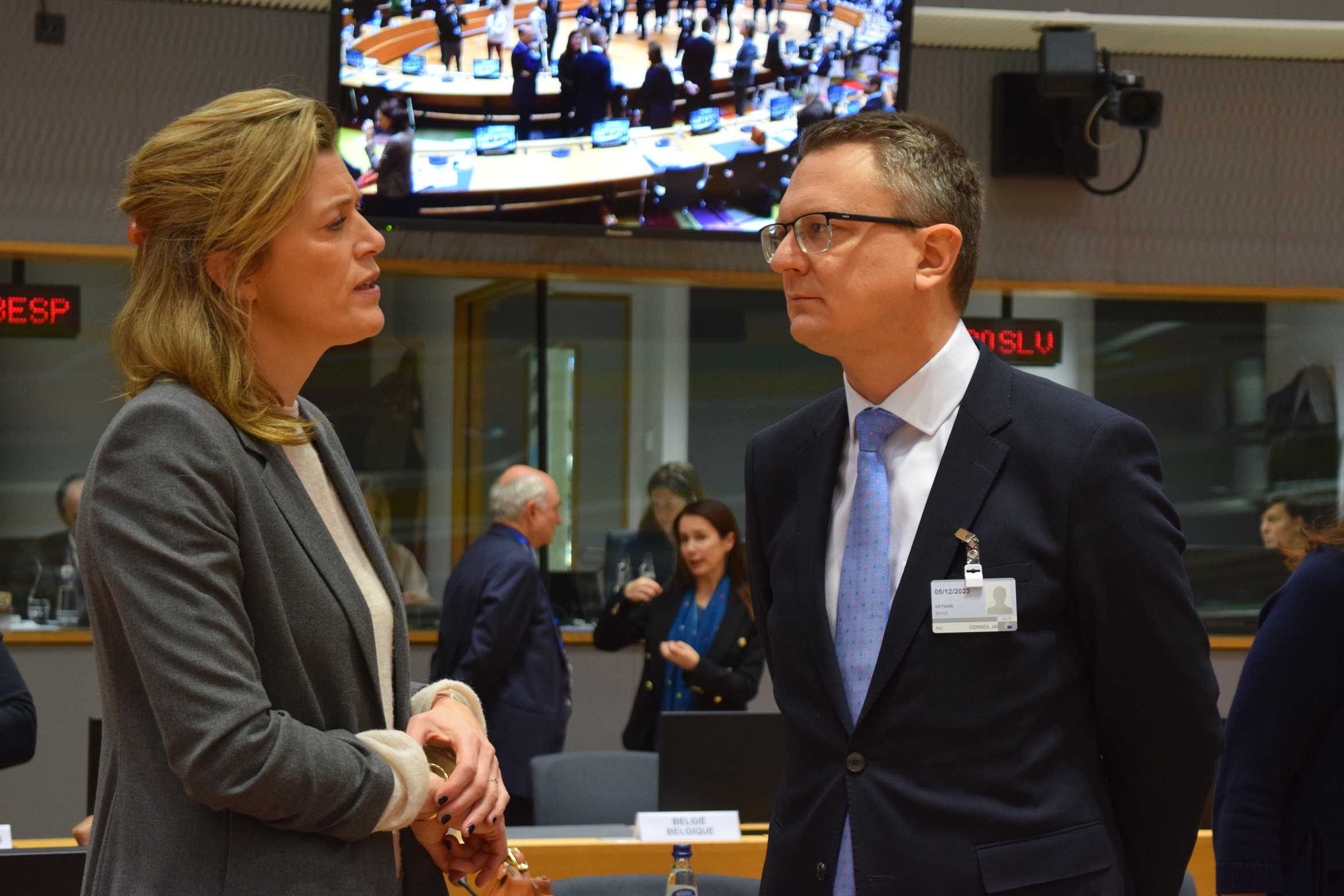
Negotiations between the European Commission, the Council and the European Parliament are ongoing. The EU legislative body is trying to further soften the bill and make it more migration-friendly. Still, the EU wants to force it at all costs before the EU elections - the state secretary added after a meeting of Member States’ interior ministers.
"We have seen before how the European Union even went against its own rules of procedure, by rewriting them it did not seek consensus, but imposed its proposal by force. What we can see now is that they want us to accept an as fast and as pro-migration proposal as possible which is not a good one" – the State Secretary said.
According to Rétvári, the European Union has been on the wrong track since 2015, and the migration pact would only be a continuation and reinforcement of this, which is why a new approach is needed, primarily to protect borders and to process asylum applications outside the territory of the European Union.
He emphasised that the longer the EU delays facing reality, the more difficult it will be to correct its previous mistakes. Illegal migration and human trafficking networks are becoming more and more challenging to confront every day as they are becoming more organised and have more and more capital, he added. The human traffickers' fees are often paid with the money that migrants in Western Europe receive as aid, he said, adding that the assistance is used to pay the costs of those who smuggle their relatives and friends to Europe.
Bence Rétvári pointed out: "the European Union can decide in which direction it will proceed: either it will restore the control on 7,500 kilometers of its internal borders, or stop illegal migration on the 440-kilometer land section of the border shared by Bulgaria and Greece with Turkey, on the external border of the European Union. Hungary supports the latter".
He also said that, according to figures published at the Council meeting, illegal migrants pay fees ranging from €5,000 to €16,000 to human traffickers, and pointed out that border controls have been reintroduced in several places in Europe.
" In Europe, there will slowly be more border controls than not. At the Council meeting, several participants noted that the European Union's area without internal borders is a thing of the past and that border controls have eradicated the Europe without borders.
He pointed out the increased threat of terrorism in the EU during the festive period, the increased presence of police in public places, and the closure of synagogues in several places.
"While the Israeli football team has come to Hungary to play its international matches in safety, other countries are stepping up protection of Jewish institutions, especially those under attack by Arab illegal migrants," he recalled.
Bence Rétvári also pointed out that a short video was shown to the participants of the Council meeting about illegal migrants aggressively acting on Hungary's southern border, attacking police officers several times with firearms. He said that despite the video being shown during the last item on the agenda, "there was a stunned silence in the meeting room of Brussels."
"Many people took pictures of some of the video frames, and many of them asked for this footage. The overwhelming majority of decision-makers and interior ministers in Brussels had never been to Hungary's southern border and were completely unaware of exactly what was happening there," he pointed out.
Bence Rétvári said it was thought-provoking that decisions on the migration pact had been taken for months, but when they saw on video what was actually happening at the Hungarian southern border, there was shock and silence in the room.
Source: MTI-Hungarian News Agency
Magyarország az uniós kéréseknek eleget tett, várja, hogy a neki járó pénzek megérkezzenek
Magyarország az Európai Bizottságnak a magyar igazságügyi reformmal kapcsolatos minden, az ország érdekeivel azonos, a magyaroknak nehézséget nem okozó kérésének eleget tett, ezért várja, hogy a neki járó uniós pénzek megérkezzenek - jelentette ki az igazságügyi miniszter Brüsszelben hétfőn.
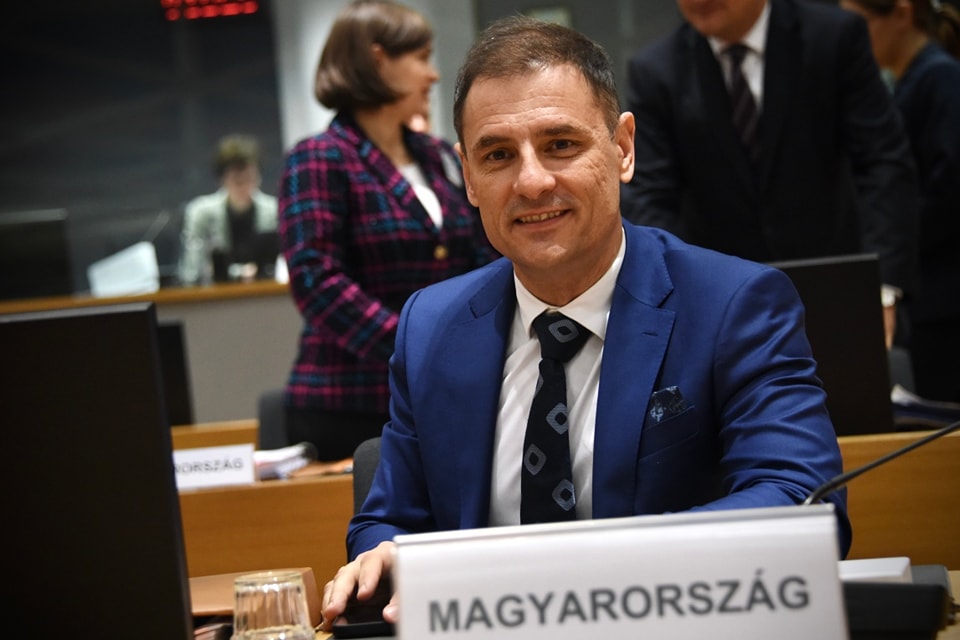
Tuzson Bence az uniós tagországok igazságügyi minisztereinek tanácskozása szünetében magyar újságírókkal közölte: Magyarország, mivel minden uniós kérést teljesített, az igazságügyi reformmal kapcsolatos uniós megbeszéléseket lezártnak tekinti.
"Minden olyan kérdést megválaszoltunk, minden olyan kérést teljesítettünk, amely ahhoz szükséges, hogy az uniós pénzek felszabaduljanak. Most azt várjuk, hogy az uniós bizottság hogyan fog dönteni e tekintetben, és várjuk, hogy az uniós pénzek megérkezzenek Magyarországra" - fogalmazott az igazságügyi miniszter.
Közölte, Magyaroroszág "természetesen" csak azokat a kéréseket teljesítette, amelyek nem állnak ellentétben érdekeivel. Innentől kezdve további kérdés nincsen, illetve nincsen jelenleg olyan kérés Magyarország irányába, amelyet Magyarország száz százalékban ne teljesített volna - tette hozzá.
Tuzson Bence kijelentette: Magyarország számára az első és legfontosabb kérdés a szuverenitás megőrzése, valamint igazságügyi szempontból az, hogy a versenyképességét biztosítani tudja. Magyarország mellett fontos az Európai Unió versenyképességének szavatolása is, hiszen az utóbbi időszakban mind Amerika, mind pedig Kína előnyt szerez ezen a területen, ami komoly lemaradást eredményezhet 2030-ra Európa számára - mondta.
Az igazságügyi miniszer a versenyképesség biztosításával összefüggésben az általános adatvédelmi rendeletet (GDPR) említette, amelyről azt mondta: meg kell vizsgálni, hogy a szabályozás nem okoz-e túl nagy terhet a kis- és közepes vállalkozásoknak.
Komoly üzleti hátrányt jelent Magyarország és az Európai Unió szempontjából, ha a nagy technológiai cégek adott esetben többet tudnak az emberekről, mint egy ország a saját állampolgárairól - emelte ki.
Tuzson Bence jónak nevezte Magyarország és az Európai Ügyészség együttműködését, azonban - mint kiemelte - szuverenitási kérdés, hogy a nyomozati hatáskör kinél van, és ki rendelhet el nyomozást Magyarországon. Szuverenitása jelentős darabjának elvesztését jelentené, ha ezt a jogot kiadná kezéből Magyarország - húzta alá.
Az igazságügyi miniszter végezetül sajnálatosnak nevezte, hogy a legtöbb uniós ország külön kezeli a belső biztonság kérdését az illegális migrációtól.
"Nekünk magyaroknak meggyőződésünk, hogy a két kérdés összekapcsolódik, és ennek most már egyértelmű jelei vannak. Egyértelműen összekapcsolódik az illegális migráció kérdésével az, hogy terrorcselekmények fordulhatnak elő Európában, és válnak rendszeressé bizonyos országokban" - fogalmazott.
Az Európai Unió intézkedései nem jelentenek megoldást erre a problémára. Ha így megy tovább, és az EU nem talál hatékony megoldást ezekre a kérdésekre, hanem olyan álkérdésekkel foglalkozik, mint például a jogállamiság, az hosszú távon problémát fog okozni az EU működésében - tette hozzá Tuzson Bence.
Forrás: MTI
Hungary has complied with EU demands and waits for the money it is entitled to
Hungary has fulfilled all the European Commission's requests regarding the reform of the Hungarian judiciary, which are in the country's interests and do not cause any difficulties for Hungarians, and is therefore waiting for the EU funds it is entitled to, the justice minister said in Brussels on Monday.

Bence Tuzson told Hungarian journalists during the break of the meeting of the justice ministers of the EU Member States: since Hungary has fulfilled all the EU's requests, it considers the EU's discussions on judicial reform to be closed.
"We have answered all the questions and fulfilled all the demands necessary for the EU funds to be released. We are now waiting to see how the commission will decide in this regard, and we are waiting for the EU funds to arrive in Hungary," said the Minister of Justice.
He said that "of course," Hungary had only complied with requests that were not contrary to its interests. From now on, there are no further questions or requests that Hungary has not fulfilled 100 percent, he added.
Bence Tuzson said that Hungary's first and most crucial issue is to preserve its sovereignty and, from a judicial perspective, to ensure its competitiveness.
In addition to Hungary, it is also essential to guarantee the competitiveness of the European Union since, in the recent period, both the US and China are gaining an advantage in this area, which could result in a severe lag to Europe by 2030, he said.
In connection to ensuring competitiveness, the Minister of Justice mentioned the General Data Protection Regulation (GDPR). He said it is necessary to examine whether the regulation does not cause too much of a burden on small and medium-sized enterprises.
He pointed out that it is a severe business disadvantage for Hungary and the European Union if large technology companies know more about people than a country knows about its own citizens.
Bence Tuzson said that the cooperation between Hungary and the European Public Prosecutor's Office is good, but as he pointed out, it is a question of sovereignty who has the investigative powers and who can order an investigation in Hungary. He underlined that it would mean losing a significant part of its sovereignty if Hungary were to hand over this right.
Finally, the Minister of Justice called it regrettable that most EU countries treat the issue of internal security separately from illegal migration.
"We Hungarians are convinced that the two issues are linked, and there are now clear signs of this. The fact that terrorist acts can occur in Europe and become regular in certain countries is clearly connected to the issue of illegal migration," he said.
The measures of the European Union are not a solution to this problem. If it continues like this and the EU does not find an effective solution to these issues but instead deals with pseudo-issues such as the rule of law, it will cause problems for the operation of the EU in the long term - added Bence Tuzson.
Source: MTI-Hungarian News Agency
The Council of Finance Ministers also approved it, EU funds can come to Hungary
The finance minister announced in Brussels on Friday that the EU finance ministers accepted Hungary's amended recovery plan, another obstacle to the disbursement of funds due to our country has been removed.
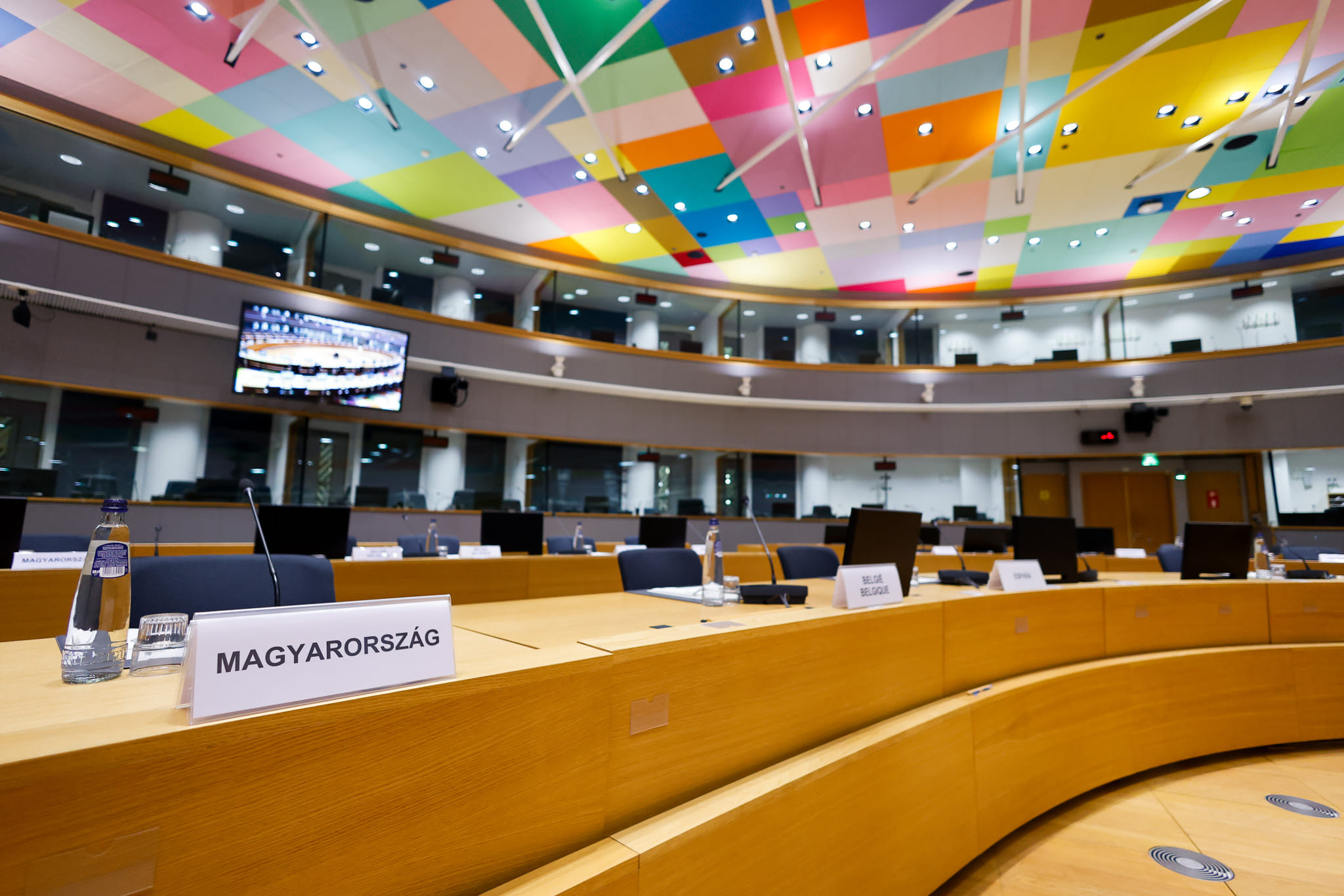
Speaking to Hungarian journalists after the meeting of the Council of Finance Ministers of the EU Member States (Ecofin), Mihály Varga highlighted that all this means that the recovery plan has been officially supplemented with a loan portion of 3.9 billion euros in addition to the 5.8 billion euros of non-refundable support, with an additional 0.7 billion of non-refundable budget from the REPowerEU plan.
He said that the approval by the Council of Finance Ministers means that the advance tranche of €920 million (around HUF 380 billion) could arrive as early as January.
"This removes the last obstacle to Hungary's access to the money it is entitled to," Mihály Varga said.
The finance minister reminded that in addition to the REPowerEU support, the Hungarian government will use the loan part mainly for investments and developments that support green transition. He stressed that Hungary has permanently attached great importance to the green transition and is committed to being one of the winners of the green transition. Therefore, he said 67.1 percent of the total program will target elements of the green transition.
Mihály Varga expressed his hope that the cohesion and reconstruction funds will soon be released, as "Hungary has fulfilled all the conditions, so it can get the funds it is entitled to as soon as possible."
The Minister also informed about the Spanish Presidency of the EU Council which failed to reach a compromise on economic governance reform and that discussions on this issue will continue. Hungary has always maintained that the room for maneuvering of national governments in budgetary policy should be increased, not that of the European Commission, he said.
"The Hungarian Government's position has always been open and clear: the reform of economic governance must fundamentally expand the instruments of nation-states, of national governments," the Minister said, adding that Member States are best placed to decide what their economies need, and how to restore public finances and economic growth to a balanced path. Hungary would give the European Commission much less powers, he underlined.
Finally, Mihály Varga said that Hungary had previously proposed that a unique set of rules should be defined for defense spending, according to which the additional costs related to the defense sector would not be included in the deficit under the Maastricht criterion. The finance minister added that the Hungarian proposal was finally included in the draft economic reform package, which demonstrates the government's strong lobbying capacity.
Source: MTI-Hungarian News Agency
Péter Sztáray discussed Hungary's space policy ambitions in Brussels
Government officials of Member States responsible for space discussed the EU's vision for space at the Competitiveness Council on 8 December 2023. Hungary was represented at the meeting by Péter Sztáray, State Secretary for Security Policy and Energy Security.
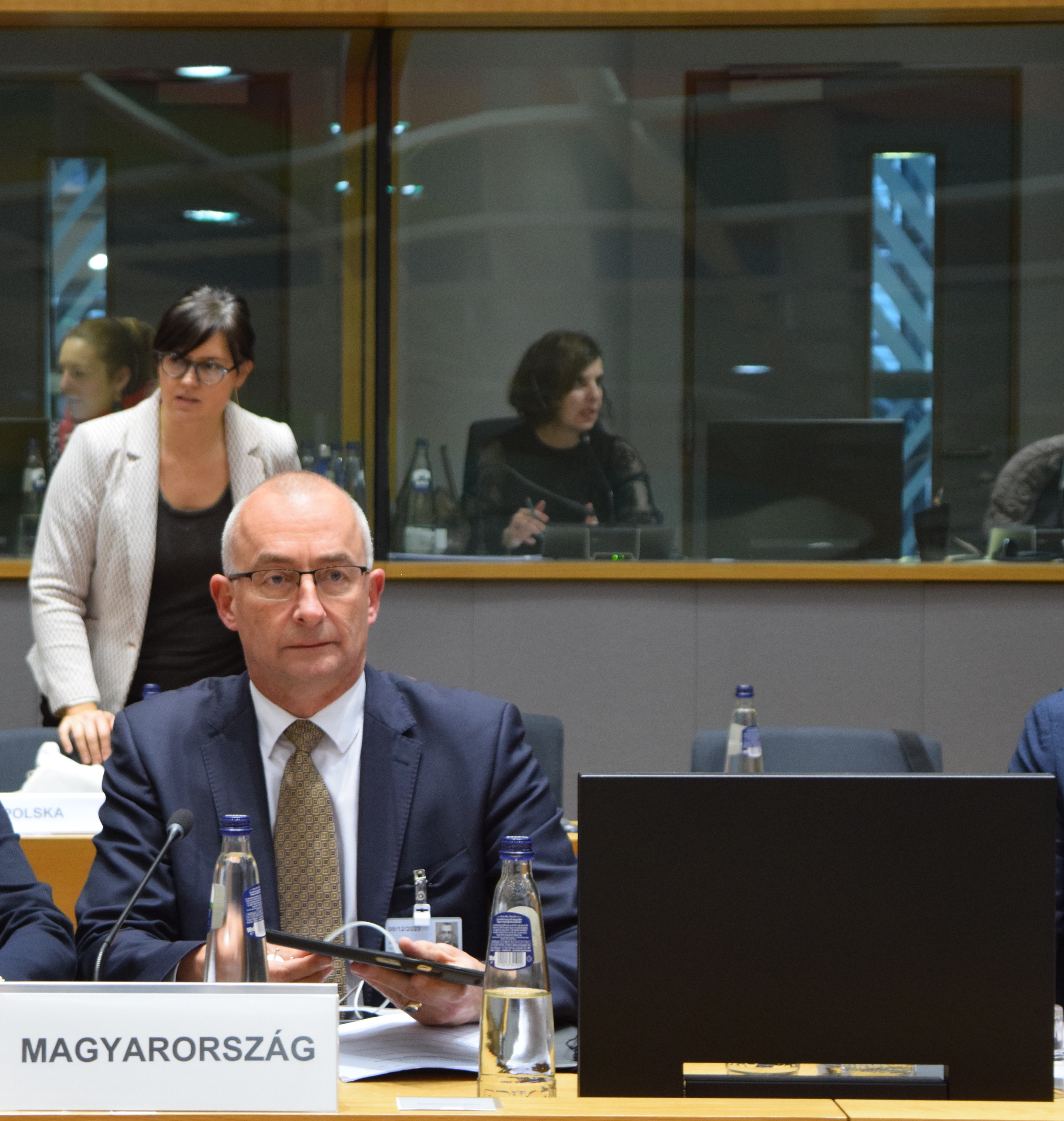
This year, the space policy focal points of the cross-cutting format were centered around the vision of EU space policy. Building on the Strategic Guidelines adopted by the Council in 2022 and the EU Security and Defence Strategy 2023, Member State representatives discussed several risk factors that highlight the need to protect EU space assets and services in a unified way, given the geopolitical situation that has been significantly disrupted in recent years. At the Council meeting, Member States agreed that the EU's space capabilities are a cornerstone of our collective security and our long-term strategic autonomy in the EU.
State Secretary Péter Sztáray emphasized the need to build a coherent framework to integrate space-related capabilities into a broader security ecosystem in line with the constantly evolving security needs. However, this evolution requires a delicate balance between civilian principles and security requirements. The State Secretary said that Hungary considers the two strategy papers to be an appropriate first step in striking this balance, as it can adequately align the segments and targeted missions of the EU's essentially civilian space programs with security and defense objectives.
On the sidelines of the EU deliberations, the State Secretary held a meeting with the management of the European Commission's Directorate-General for Defense and Space (DG DEFIS), as well as with the State Secretary for Space Affairs of Belgium, Thomas Dermine, who will hold the presidency of the Council in the first half of 2024. At the bilateral meetings, Péter Sztáray confirmed the ambitions contained in Hungary's space strategy and expressed his support for the presidency trio partner Belgium in achieving its space policy goals. On behalf of Hungary, he emphasized that during the Council period due in the second half of 2024, we are ready to contribute significantly to the dynamics of EU space policy.
Source: MTI-Hungarian News Agency
Minister of Agriculture: Ukraine's accession to the EU would threaten the livelihood of European farmers
Ukraine's possible accession to the European Union would jeopardise the livelihoods of European farmers, who would not be able to compete with the hundreds of thousands of hectares of Ukrainian farms owned by Western big capital, whose production are under much less stringent rules, the agriculture minister said in Brussels on Monday.
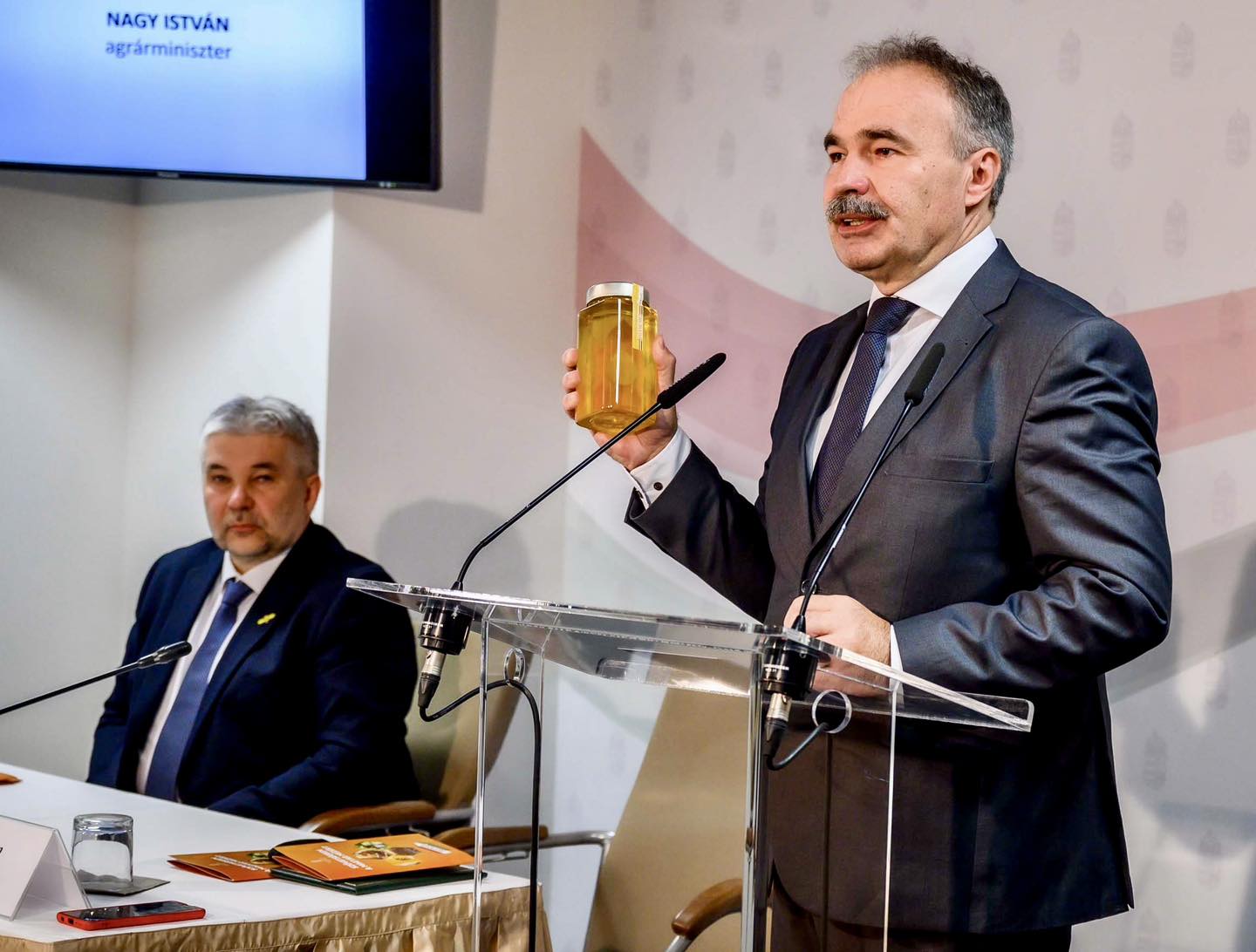
István Nagy told Hungarian journalists after the meeting of agriculture ministers of the Member States that the European Commission has not prepared an analysis of the expected effects of a possible Ukrainian accession to the EU on agriculture. Still, according to estimates, Ukrainian farms would receive almost 30 percent of the Common Agricultural Policy (CAP) subsidies.
Consequently, he said that support for farmers in other Member States, including Hungary, would be significantly reduced.
The farmers of the bordering Member States are already "feeling first-hand" the effects of Ukraine's possible EU accession on the agriculture of the European Union (EU), since due to the dismantling of trade barriers, from an agricultural perspective, Ukraine has been part of the internal market for practically one and a half years, he said.
The bordering Member States could not rely on the European Commission when it comes to the treatment of market disruptions caused by the increased Ukrainian imports. Furthermore, the fact that the EU import ban was lifted during the harvest shows complete incompetence. In response, the Commission is threatening Hungary, Poland and Slovakia with infringement proceedings due to the measures introduced under national competence. Hungary has already received the letter about that, said István Nagy.
The agriculture minister said that Member States had no agreement on the Commission's proposal for new gene therapy techniques. He said that this confirms Hungary's position that more time is needed to develop a suitable solution and that nothing should jeopardise food security.
"From the Hungarian side, we consider it a question of sovereignty that we can decide with which technology we want to grow and consume plants or produce food in our own country," said István Nagy, adding that consumers have the right to know what they are buying and consuming.
Regarding the Commission's proposal to reduce the plant protection products, the Minister of Agriculture said the rejection of the proposal qualifies the European Commission's document. He stated that the proposed introduction of mandatory reduction targets based on the lawnmower principle, which completely disregards the results achieved so far, and the ban on other sensitive areas would seriously endanger the EU's food security.
István Nagy said the proposal was irresponsible and unacceptable. He said that Hungary does not consider it necessary to create a new rule in an area where there is no need for it, as the objectives set can be achieved with the current legal framework and practice.
Source: MTI-Hungarian News Agency
Full agenda on the last Agriculture and Fisheries Council of the year
Ministers discussed the agri-market situation and fishing opportunities for 2024, and exchanged views on various legislative proposals at their meeting in Brussels on 10-12th December.
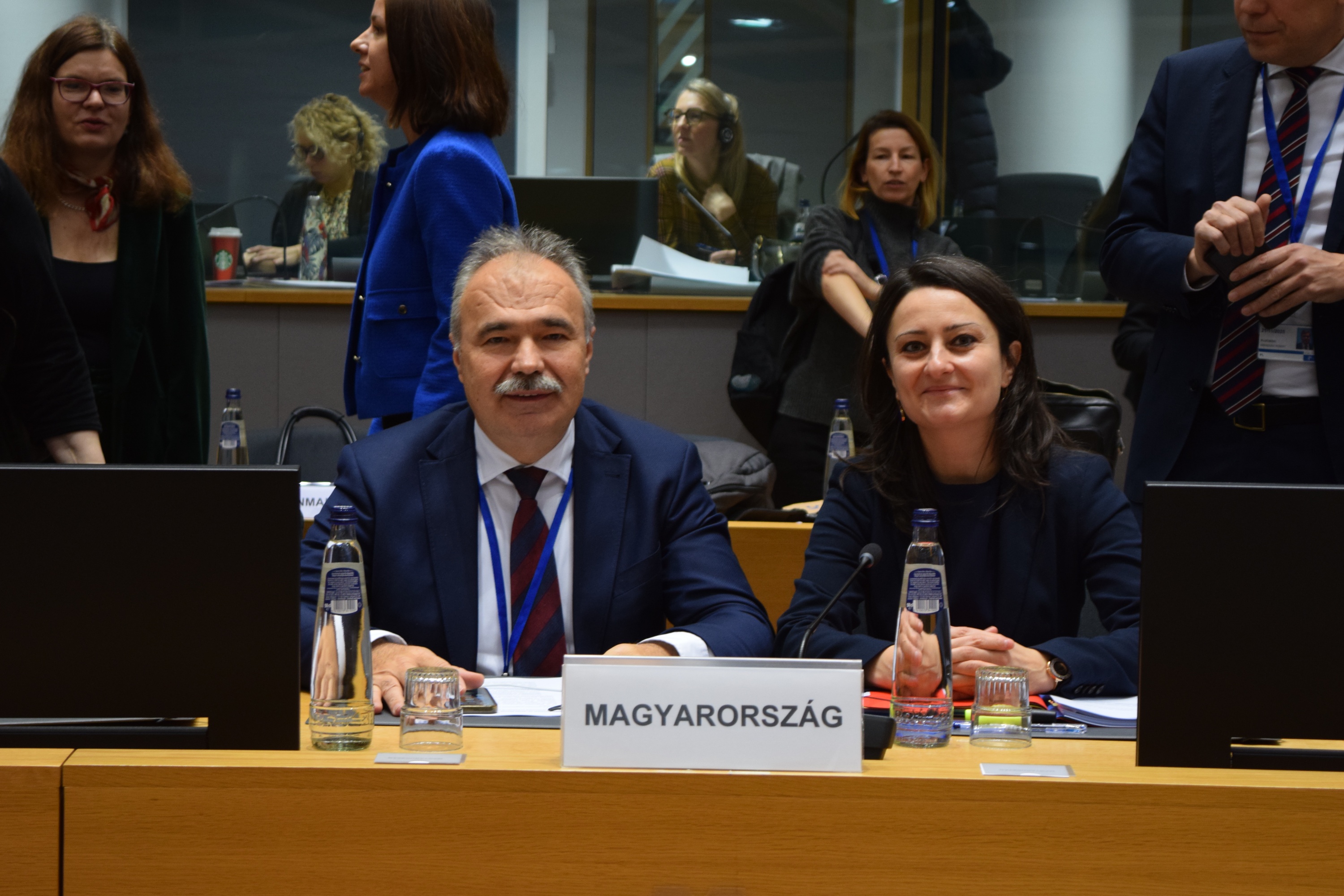
The European Commission stressed the need to strengthen the Solidarity-lanes, in order to support the Ukrainian economy. However, according to the frontline Member States the situation on agricultural markets is still under heavy pressure due the low purchase prices. For the first time, Member States much further from the Ukrainian border, reported similar negative effects. Minister István Nagy stressed the importance of improving the functioning of the Solidarity Lanes and restoring their original purpose. He added that Ukrainian agricultural products should return to their traditional export markets and reach the third countries in need. The Minister stressed the need for such a solution on Ukrainian grain imports, which takes into consideration the interest of farmers both in frontline Member States and in Ukraine.
As regards the Sustainable use of Pesticides proposal, Minister Nagy emphasized, that such rules can be adopted only, which contribute to environmental protection and climate goals without jeopardizing the agricultural production and the food security. The Minister stressed that the application of the current directive has also led to a significant reduction in pesticide use, which is expected to continue with the implementation of the new CAP.
The ministers generally considered the new genomic techniques (NGT) as a potential opportunity to achieve the goals set out in the European Green Agreement but most of them, like Minister István Nagy, warned to be cautious of their application. Minister Nagy considered the question also as a matter of sovereignty to decide for ourselves which technology we want to use to grow crops on our territory. For this reason, Hungary welcomed the possibility to provide an opt-out for NGT2 crops, but regarding health and the environment protection expressed the need of further negotiations to reach the Council's position.
Minister István Nagy highlighted the importance of the legislative proposals on plant and forest reproductive materials, since seed production, plant propagating material production and breeding have centuries-old traditions in Hungary. The plants used in agriculture are key genetic resources which were the basis of food production. He emphasized, that we needed regulations, which ensure the maintenance of already existing national characteristics and which do not unduly increase the administrative burden of businesses and authorities.
Ministers discussed the proposal for a directive aimed at regulating various breakfast products, in the framework of which they agreed that in the future it will be mandatory to indicate the place of origin and the exact percentage of honey on the packaging of honey blends. This amendment has been advocated by Minister István Nagy several times since 2019.
Ukraine's EU membership is a bad decision and Hungary does not want to be part of that
Ukraine's EU membership is a bad decision and Hungary does not want to be part of this bad decision, Viktor Orbán said in a video posted on his social media page on Thursday.
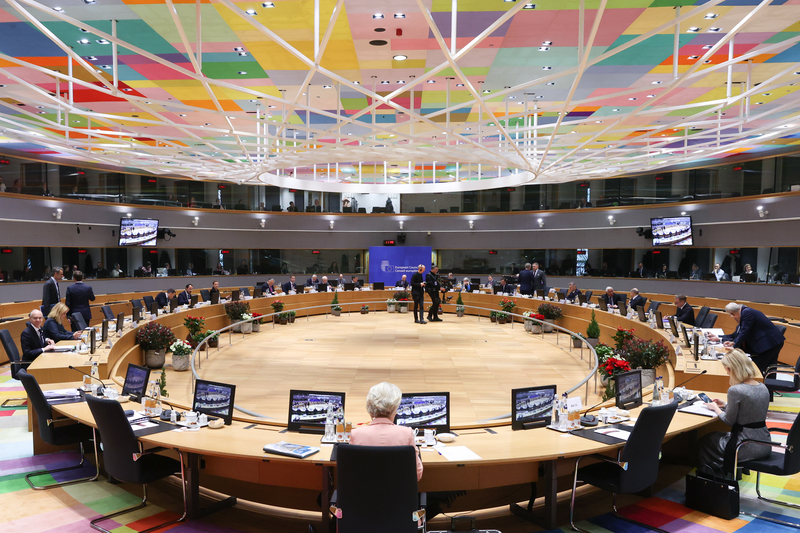
In a message recorded during the break of the EU summit in Brussels, Orbán said Hungary's position is clear: Ukraine is not ready for the European Union to start negotiations with it on EU membership.
It is a completely pointless, irrational and inappropriate decision to open negotiations with Ukraine under these circumstances, and Hungary is not changing its position, the Prime Minister stressed.
In contrast, 26 other countries insisted on taking that decision, he said. Therefore, Hungary decided that if 26 other countries decided so, they should go their own way, he announced. Hungary does not want to share this bad decision, and therefore Hungary abstained from the decision today, he informed.
The negotiations will continue with the amendment of the budget, Mr Orbán added.
Source:MTI-Hungarian News Agency
Environment Council in Brussels
The Environment Council took place in Brussels on 18 December. Hungary was represented at the meeting by Dr. Anikó Raisz Secretary of State for Environment and Circular Economy.
The highlight of the agenda was the packaging and packaging waste regulation. Ministers agreed – with the support of Hungary – on the Council's common position, so inter-institutional negotiations can start with the Parliament in order to adopt the final text. The overall objective of the regulation is to harmonize the different national measures for the management of packaging and packaging waste in order to prevent or reduce their negative impact on the environment. Anikó Raisz stressed that the use of packaging and the amount of waste it generates is on the increase, despite the joint efforts made so far. She supported efforts to reduce waste generation and as well as decisive and consistent steps to increase the role of reuse systems. She emphasized that the use of deposit return schemes is necessary to achieve these objectives.
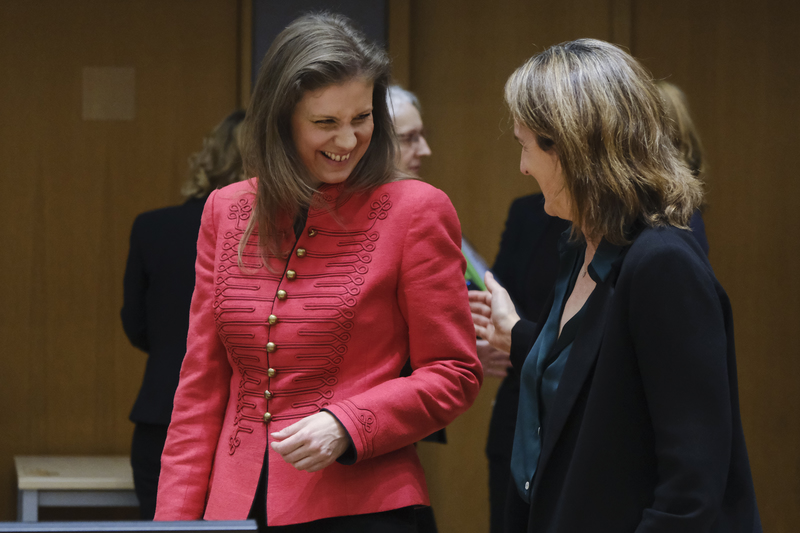
Ministers, furthermore, had an exchange of views on the targets of the proposals on the directive on soil monitoring and resilience and the regulation on a monitoring framework for resilient European forests. With regard to soil monitoring law, the member states agreed that there is a need for broad and comparable data on the condition of the soils. The ministers underlined, that when we determine the conditions of healthy soil, we have to take into account national specificities. In relation to the forestry monitoring proposal, the member states supported the harmonization of data collection at the European level. With regard to both proposals, the ministers emphasized that the existing member states' systems should be taken as a basis.
During lunch, ministers discussed the 2040 climate target of the European Union, which is soon to be published. As an invitee, Ottmar Edenhofer, president of the European Scientific Advisory Body on Climate Change presented the assessment of the Body on the 2040 target, which recommends at least 90-95% emission reduction. Anikó Raisz State Secretary called for a realistic target backed by citizens and underlined that the decision on the target should be set at the highest political level, the European Council.
Among any other business the incoming Belgian Presidency presented its work program in the field of environment and climate.
